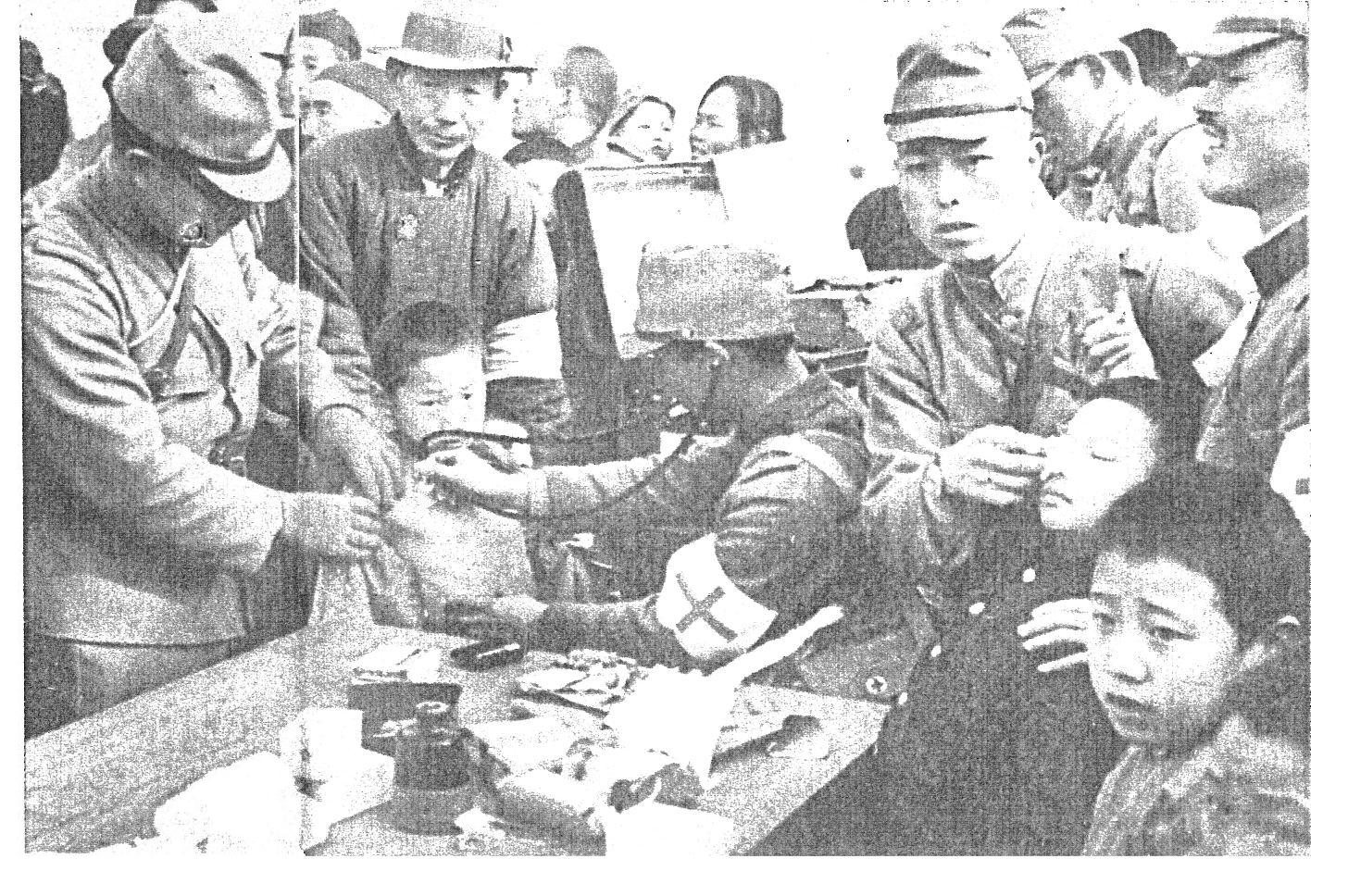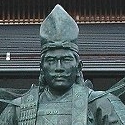|
I'm not trying to get into a big thing. I just wonder what the argument is. Is it just another East Asian "Look at this thousand year old map that shows a completely different name attached to an abstract circle that is definitely these islands, forever proving our modern state's claim to the territory"? Those are delightful.
|
|
|
|

|
| # ? May 10, 2024 12:49 |
|
I can understand why the governments care about these minor island disputes, but why on earth do general populations give two shits about any of them Also judging by wikipedia's near dismissal of the Japanese claim I'm going to guess it's been editted by Korean nationalists.
|
|
|
|
It wouldn't be such a farce if Japan didn't undermine its position by trying to get Korea to take the Dokdo issue to the ICJ but refusing to let China do the same for the Senkakus, going so far as to say "a dispute does not exist", even going so far as to tear into Hatoyama for speaking about the issue on a recent China visit.
Sheep fucked around with this message at 05:32 on Mar 27, 2013 |
|
|
|
Bloodnose posted:I don't know the issue very well. Cursory Wikipediing says the Koreans have administered the rocks for more than 60 years. What's so strong about the Japanese claim? Korean consultants argued for the islands to be explicitly ceded in the Treaty of San Francisco but the Americans refused to do so. This shows that, at least at the time, the victorious powers regarded them as an integral part of Japan. That said I would agree that Korea has an arguable claim. China's claim on the Sankakus on the other hand is entirely bullshit and would be disregarded by everyone in the same way as the Philippines' Borneo claim is if it weren't for China's economic clout. Cliff Racer fucked around with this message at 05:33 on Mar 27, 2013 |
|
|
|
Koramei posted:I can understand why the governments care about these minor island disputes, but why on earth do general populations give two shits about any of them Yeah, wikipedia has serious problems with nationalists getting their way on various issues, e.g. the Japanese Nanjing Massacre article has three images in total, one a Chinese propaganda poster encouraging the execution of collaborators and the other two photos showing the Japanese being nice to local children and wounded soldiers respectively. Here they are for reference:   
|
|
|
|
dilbertschalter posted:Yeah, wikipedia has serious problems with nationalists getting their way on various issues, e.g. the Japanese Nanjing Massacre article has three images in total, one a Chinese propaganda poster encouraging the execution of collaborators and the other two photos showing the Japanese being nice to local children and wounded soldiers respectively. The thing that happened in Nanjing. Nice, nationalists. Nice. I wonder if the German page calls Kristallnacht the Window Incident.
|
|
|
|
Bloodnose posted:Wow, even the title of it. I'm assuming the characters mean the same thing in Japanese. In Chinese, it says "Nanjing Incident." They do, it's the same thing, though the Japanese tend to use 事件 for a wide range of stuff. I'm not aware of anything even close to the scale of Nanking also being referred to as a 事件 however. Here's some others so you get the idea - I translated names but the rest you should be able to figure out: コロンバイン(Columbine)高校銃乱射事件, 秋葉原(Akihabara)無差別殺傷事件/秋葉原通り魔事件,附属池田(Ikeda)小事件,etc. Normally a massacre/genocide would be (大)虐殺 depending on scale. You'll notice in the examples I posted, most of the bodycounts were pretty low compared to even super conservative estimates of Nanking; compare with the プリイェドルの虐殺/Prijedor massacre in Bosnia where "only" 3000 people died. So yeah there's a certain amount of whitewashing going on, hidden behind semi-legitimate terminology usage. Sheep fucked around with this message at 08:59 on Mar 27, 2013 |
|
|
|
Koramei posted:I can understand why the governments care about these minor island disputes, but why on earth do general populations give two shits about any of them Because there is a TON of frozen gas under the pacific seabed there. Japan tested out mining for it quite recently and produced really good results. See this article: http://english.kyodonews.jp/news/2013/03/213685.html The reserves that they drilled on here are expected to give out enough gas to cover annual consumption in Japan. This area is off the East coast of Japan and is much smaller than the reserves expected under Senkaku and the like. For a country with no energy resources, this is pretty major and can affect prices in a country greatly. So everyone should be involved.
|
|
|
|
Kenishi posted:Because there is a TON of frozen gas under the pacific seabed there. Japan tested out mining for it quite recently and produced really good results. See this article: http://english.kyodonews.jp/news/2013/03/213685.html Do you honestly believe that's why the general population cares about it? Energy security? It's lovely nationalism and refusing to let "those foreign bastards" push them around. On both sides.
|
|
|
|
Sheep posted:They do, it's the same thing, though the Japanese tend to use 事件 for a wide range of stuff. I'm not aware of anything even close to the scale of Nanking also being referred to as a 事件 however. Here's some others so you get the idea - I translated names but the rest you should be able to figure out: コロンバイン(Columbine)高校銃乱射事件, 秋葉原(Akihabara)無差別殺傷事件/秋葉原通り魔事件,附属池田(Ikeda)小事件,etc. Out of curiosity, I decided to compare Wikipedia articles of some bad things done by Americans. They're all pretty graphic and, like, shamey, I guess. Now I suspect we don't owe that entirely to American contrition over them having happened and a big part of it is that English Wikipedia has contributors from a hell of a lot more countries who don't have a stake in American pride and no interest in 'toning down' the tragedy. It's just another example of how insular Japan is. The entire Japanese language Internet, and I guess all Japanese language anything except maybe anime and video games, is exclusively for the consumption of the Japanese national market. There isn't even much of a Japanese diaspora anymore to provide anything like a foreign voice or influence. I've heard the Japanese language cited as one of the reasons why foreign companies don't do better in Japan, but having studied linguistics and seen like, every other market in the world penetrated by foreign multinationals despite linguistic barriers, that doesn't sound right to me. Still, it's obvious that there isn't much outside participation in Japanese language media.
|
|
|
|
CronoGamer posted:Do you honestly believe that's why the general population cares about it? Energy security?
|
|
|
|
Bloodnose posted:I think it's still relatively commonly referred to as the 'Rape of Nanking' in English. I can't think of any other incident that we refer to as 'a Rape', and I'm pretty sure the ones that are floating around in the back of my head, but not coming forward, are called as such in reference to the Nanjing event. Nanking is by far the most common but there are others: the Rape of Belgium, Rape of Manila, Rape of Malaya, the Rape of the Sabine Women off the top of my head. 4/5 instances refer to atrocities committed by Axis powers, and can probably be attributed more to wartime propaganda than anything. In most other contexts they'd probably just be referred to as massacres or something. quote:It's just another example of how insular Japan is. The entire Japanese language Internet, and I guess all Japanese language anything except maybe anime and video games, is exclusively for the consumption of the Japanese national market. There isn't even much of a Japanese diaspora anymore to provide anything like a foreign voice or influence. quote:I've heard the Japanese language cited as one of the reasons why foreign companies don't do better in Japan, but having studied linguistics and seen like, every other market in the world penetrated by foreign multinationals despite linguistic barriers, that doesn't sound right to me.
|
|
|
|
事件 is actually used the exact same way in Chinese to tone down a controversial event, e.g. "六四事件"(Tiananmen Massacre) 二二八事件 (2/28 Massacre in Taiwan). (I'm sure Bloodnose knows this but for the reference of others) The US is interesting because certain parts of history we can point to as "We done hosed up" and certain parts we can't. We can say internment of Japanese-Americans and Dred-Scott(or all of slavery really) were wrong; we can't say Helen Keller was a socialist or teach about the horrible views/actions of pretty much any US president except maybe Hoover. Vietnam is a tossup depending on whether your teacher is a veteran or a hippie. In general there's a huge amount of variety in the USA, nothing is standardized. China for example has uniform textbooks everywhere as I understand it. I went to school in a progressive but really under-funded place so we never got to even the Korean war but what history we were taught was relatively chock full of white guilt or whatever you want to call it. The reason why people in Asian countries get upset over their rocks is pure and simple nationalism, occasionally egged on by the government. To the credit of the Japanese I don't know many Japanese who get worked up over these issues the way Koreans and Chinese do. The reason why the governments bother is geopolitical reasons and natural resources as explained above. The problem with pointing to historical maps is that's not how territory disputes are resolved pretty much ever. The overwhelming majority of times, it's determined based on who is currently administering the territory and for how long they have done so (Taiwan excluded, naturally). For better or for worse Asian countries have all decided to ignore this reality and just keep believing whatever is convenient for them. They certainly aren't the first. hitension fucked around with this message at 12:22 on Mar 27, 2013 |
|
|
|
hitension posted:white guilt or whatever you want to call it. "Reality" is the preferred nomenclature.
|
|
|
|
In totally unrelated news, Takafumi Horie was released on temporary? bail today. Guy lost 30 kilos in not even two years of jail, yikes. Here's his Wikipedia article for those that aren't familiar with him.
|
|
|
|
Sheep posted:In totally unrelated news, Takafumi Horie was released on temporary? bail today. Guy lost 30 kilos in not even two years of jail, yikes. 仮釈放 = parole
|
|
|
|
Sheep posted:Nanking is by far the most common but there are others: the Rape of Belgium, Rape of Manila, Rape of Malaya, the Rape of the Sabine Women off the top of my head. 4/5 instances refer to atrocities committed by Axis powers, and can probably be attributed more to wartime propaganda than anything. In most other contexts they'd probably just be referred to as massacres or something. Rape of the Sabine Women? I wouldn't really include a semi-mythological event from more than two thousand years ago in the list with 20th century atrocities. An addition, though; the Soviet Rape of Berlin is one I hear as often (more often really, most people I know don't know very much about WW2 Japan) than the Rape of Nanking. But it's still Soviets we're talking about and not the good Allies. What's the Korean public's opinion on Dokdo/Takeshima? Chinese people's aggression over Senkaku/Diaoyu we tend to write off as nationalism due to propoganda and silly brainwashed people (especially when we can compare it to the Japanese people's reaction on the same issue), but that can't be so true of Korea. Is it just resurgent hate over WW2 stuff. Actually what's the Japanese public opinion on them too; people are living on these islands aren't they?
|
|
|
|
Bloodnose posted:It's just another example of how insular Japan is. The entire Japanese language Internet, and I guess all Japanese language anything except maybe anime and video games, is exclusively for the consumption of the Japanese national market. There isn't even much of a Japanese diaspora anymore to provide anything like a foreign voice or influence. The diaspora exists, it is just more accutely disengaged than everyone that still lives there. They don't really feel the need to speak for or represent Japan.
|
|
|
|
Koramei posted:What's the Korean public's opinion on Dokdo/Takeshima? Chinese people's aggression over Senkaku/Diaoyu we tend to write off as nationalism due to propoganda and silly brainwashed people (especially when we can compare it to the Japanese people's reaction on the same issue), but that can't be so true of Korea. Is it just resurgent hate over WW2 stuff. The Senkakus are pretty much as you say (they were basically terra nullis until the Japanese moved in) but Japan and Korea have been squabbling over Dokdo/Takeshima for centuries. Specifically they've been butting heads over fishing rights since Edo times at the very least. From a historical precedent standpoint Japan has usually been the one to back down but both countries have claimed that particular set of rocks as their own for a long time. Korea probably has the stronger claim but at this point it's just a nationalism-fueled pissing contest on both sides for the most part--for most of the dispute's history it's been fairly insignificant. It's a much bigger issue for the Koreans than the Japanese nowadays; I could be wrong but I get the sense that outside of netouyo circles nobody really gives a poo poo about them in Japan.
|
|
|
|
It's good for Western powers when Asian nations squabble endlessly over territorial disputes, gives them leverage to play one Asian country against the other - something Asian countries are happy to comply with out of their short-sightedness in international affairs. If Asia ever stopped infighting long enough to form a bloc as cohesive as the Transatlantic alliance is in international affairs, the West would be seriously kneecapped in international affairs, but that will never happen because [insert historical grievance/darker skin color insult here]. It's 2013, Admiral Perry is not at the harbor with his fleet. If you want to form an alliance and kick the West out, it'll be rocky, but you can do it. Remove the West entirely from the present-day equation and the infighting would only continue. This is hardly confined to the conflicts that make headlines - just look at the minor level poo poo most people don't even know about. It's depressing, and kind of an interesting lesson in why multiculturalism is so relevant in the development of societies.
ReindeerF fucked around with this message at 17:56 on Mar 27, 2013 |
|
|
|
ReindeerF posted:It's good for Western powers when Asian nations squabble endlessly over territorial disputes, gives them leverage to play one Asian country against the other - something Asian countries are happy to comply with out of their short-sightedness in international affairs. If Asia ever stopped infighting long enough to form a bloc as cohesive as the Transatlantic alliance is in international affairs, the West would be seriously kneecapped in international affairs, but that will never happen because [insert historical grievance/darker skin color insult here]. It's 2013, Admiral Perry is not at the harbor with his fleet. If you want to form an alliance and kick the West out, it'll be rocky, but you can do it. Remove the West entirely from the present-day equation and the infighting would only continue. This is hardly confined to the conflicts that make headlines - just look at the minor level poo poo most people don't even know about. It's depressing, and kind of an interesting lesson in why multiculturalism is so relevant in the development of societies. Why is it depressing? The west, being far away, is much less able to leverage power against an individual country than, China is. This is also true on why more countries don't form a cohesive block. Why should they when their fundamental interests do not run together? Japan and South Korea as fully industrial/post-industrial nations have different goals than places like Thailand and Vietnam.
|
|
|
|
It's depressing not because there should obviously be some kind of pan-Asian unity on every topic, but because even when it makes sense there isn't. You make it out like there are a couple of blocs - it's everywhere. With ASEAN, between the China and Taiwan, Korea and Japan, Japan and China, Korea and China, China and the Philippines, Thailand and Cambodia, Burma and China, Burma and Thailand, Malaysia and Singapore and so on. It's depressing because these countries have a lot to gain by working together, but instead they agree to be patron states in part to spite one another. Imagine if I said, "Well, Canada has very little in common with Germany" or something - would you ever expect Canada and Germany to ally with opposing countries to spite one another, and quarter foreign armed forces just because fifty years ago they fought against one another in World War II? No, it's ridiculous. For that level of pettiness among otherwise successful countries you have to come to Asia. This is just strategic affairs, too. When you get down to trade agreements and things it gets even more absurd.
|
|
|
|
But Germany and Canada (and any other western country outside of the lovely little tax havens) have far more in common with each other than they do with any one random non-western country. With Japan and Korea, the only similarities they have with the rest of Asia are location, race and familiarity with Buddhist thinking.
|
|
|
|
I can't agree with that at all.
|
|
|
|
Yeah, uh, what? Educational system, political system, historical economic development, attitudes towards work, love of video games and cutesy things... the similarities are everywhere between Japan and Korea. I think my favorite experience with Asian in-fighting was once watching a Taiwanese girl, Japanese girl, and Chinese girl fight over who originally created those little koala bear crackers/cookies with the chocolate filling.
|
|
|
|
You seem to be misunderstanding, I was stating that Japan and Korea were similar to each other but wildly different from the rest of Asia.
|
|
|
|
Cliff Racer posted:You seem to be misunderstanding, I was stating that Japan and Korea were similar to each other but wildly different from the rest of Asia. Well, that's also false. Let's take a look at, say, Korea and Vietnam. This is just off the top of my head, but: Both countries spent the majority of the past two millennia as either client states/conquered territories of, or warring against incursions from, China. Both countries have enormous Confucian and Taoist influence on their culture and societies and have been traditionally Mahayana Buddhist (though Korea is rapidly secularizing) Both countries have heavy linguistic influence from China--Chinese characters were used in their writing systems for the majority of their recent history, and both have enormous numbers of Chinese loanwords in their vocabulary. I'm sure there are far more similarities than just that but the bottom line is there is a lot of shared cultural heritage and historical tradition throughout the countries in Asia. If you look at the past three millennia of Asian history, there is a clear theme--one enormous superpower (China) and a bunch of smaller states attempting to deal with said superpower, for good or for ill--with borders and countries fluctuating as much as they did elsewhere in the world. Their cultures and traditions were heavily influenced as a result, much the same way as European cultures were influenced by the Roman Empire. The colonial period of the 19th century and the wars (both cold and hot) of the 20th century shook things up a bit but not enough to undo hundreds of years of similarities that developed over near-constant cultural exchange.
|
|
|
|
Koramei posted:What's the Korean public's opinion on Dokdo/Takeshima? Chinese people's aggression over Senkaku/Diaoyu we tend to write off as nationalism due to propoganda and silly brainwashed people (especially when we can compare it to the Japanese people's reaction on the same issue), but that can't be so true of Korea. Is it just resurgent hate over WW2 stuff. It's absolutely nationalist brainwashing, I get to see it all the time living here. Kids get Dokdo taught from an early age. Last year the English books were revised, one of the editions has a chapter on Dokdo and how to talk to THE FOREIGNER about the Dokdo issue. The schools also have Dokdo day. I greatly enjoyed the guy who drove his truck into the Japanese embassy a few months back over it, was hilarious. There are "Dokdo is Korean land!" signs up all over. I see them on buses, in convenience stores, on the street at random. My old ATM had it as a splash screen. The section of English books about Korea at any bookstore has a ridiculous massive volume about the history of Dokdo. For reference, Dokdo is two tiny rear end rocks that nothing has ever happened on ever. There's a Korean Coast Guard station there that pollutes the area with untreated sewage, that's it. Kids are also taught to hate Japan from birth by their parents and the school system, which adds into it. I've never met a Japanese person who gave a poo poo or had even heard of it, but I haven't spent that much time in Japan. And to be fair, most of my Korean friends don't give a poo poo either. But as you'd imagine, the kind of Koreans who are hanging around with whitey are different than average. Korea also has a hilarious dispute with China over an "island" called Ieodo that is underwater, but it doesn't get much press.
|
|
|
|
Genpei Turtle posted:Well, that's also false. Let's take a look at, say, Korea and Vietnam. This is just off the top of my head, but: I already set aside Buddhist (and though not explicitly stated) Confucian influence on culture as being one thing that Asian countries actually did have uniquely in common with eachother. But of the other things you list one is not really relevant since neither use Chinese characters anymore and the other, if anything, is actually a reason for Asian countries to work with foreign powers against the local one, instead of being the opposite.
|
|
|
|
Cliff Racer posted:neither use Chinese characters anymore Whoa son where'd you get that idea?
|
|
|
|
Koreans use Hangul and Vietnamese use some romanized system left over by the french, I had been led to believe?
|
|
|
|
ocrumsprug posted:The diaspora exists, it is just more accutely disengaged than everyone that still lives there. They don't really feel the need to speak for or represent Japan. Cliff Racer posted:I already set aside Buddhist (and though not explicitly stated) Confucian influence on culture as being one thing that Asian countries actually did have uniquely in common with eachother. But of the other things you list one is not really relevant since neither use Chinese characters anymore and the other, if anything, is actually a reason for Asian countries to work with foreign powers against the local one, instead of being the opposite. ASEAN(+3) is the closest thing Asia has to a supranational union, and it's a complete joke.
|
|
|
|
Cliff Racer posted:Koreans use Hangul and Vietnamese use some romanized system left over by the french, I had been led to believe? Samurai Sanders fucked around with this message at 02:58 on Mar 28, 2013 |
|
|
|
Cliff Racer posted:I already set aside Buddhist (and though not explicitly stated) Confucian influence on culture as being one thing that Asian countries actually did have uniquely in common with eachother. But of the other things you list one is not really relevant since neither use Chinese characters anymore and the other, if anything, is actually a reason for Asian countries to work with foreign powers against the local one, instead of being the opposite. Wait, what? You don't honestly think that because Vietnamese and Korean dropped Chinese characters from common usage (they still are both occasionally used, BTW, especially in Korea) that the common linguistic root is gone, do you? The words don't change. I mean, you can write "practice" 練習 in Japanese as れんしゅう but that doesn't remove the fact that it's still a Chinese word. And you seriously think that having come to loggerheads with China hundreds of years ago should be a valid reason for Asian countries to band together with the West against China now? Talk about missing the point. After centuries of Chinese political, economic, and cultural hegemony, many, many elements of its culture, traditions, and philosophy were adopted by its neighbors to the point that it became an integral part of their cultures. Such to the point that it forms a common root between practically every cultural and ethnic group in the region. So that's why a statement like "Korea and Japan are nothing at all like other countries in Asia!" is so ridiculous--because even though there are significant differences to be sure, there are also common ties at the core of the cultures that can't just be handwaved away. edit: Bloodnose posted:You could say the same thing about western European countries and Christian influence and Latin. There really isn't much that Germany and Italy have in common with one another, or France and the Netherlands. Sweden and Finland don't even speak languages from the same phylum and one occupied the other for a billion years, but they somehow manage to get along in the EU. Pretty much this, too. To expand on my earlier point, Chinese influence in a lot of Asian cultures is similar to Christian influence in a lot of European cultures in that it's an integral part but doesn't define them. Plus, for centuries the countries of the EU were constantly squabbling amongst themselves in nationalist furor much the way that Asian countries are now. Genpei Turtle fucked around with this message at 03:01 on Mar 28, 2013 |
|
|
|
e^: It took Europe mostly destroying itself in the first half of the 20th century to reach an accord, so don't over estimate the cooperation from cultural similarities.Bloodnose posted:I actually meant the opposite. The Jewish and Chinese diasporas for example have been instrumental in shaping the politics, culture and economy of Israel and the Republic of China respectively. Japan as far as I know doesn't have that. I was mostly agreeing with you actually. A Japanese version of B'nai Brith just doesn't exist. Vancouver does have a fairly large Japanese community, though to call it a community is a bit of a stretch. You are absolutely correct that Japan's ex-pats generally don't have anything to do with the country after they leave. Even when the tsunami wiped out Fukushima, or now as the detritus of it washes ashore here, I cannot recall a single instance of a Japanese expat talking about the tragedy, any Japanese community organized aid drive or any sort of local human interest story. This is in marked contrast to how most other expat groups that live here behave. ocrumsprug fucked around with this message at 03:28 on Mar 28, 2013 |
|
|
|
Maybe it is because Japanese folks abroad don't have a habit of importing family from back home to live with them in their new countries? Immigrants from poorer countries seem to form strong social and commercial bonds with fellow immigrants from those countries and use them to build up their community and businesses. At the same time they are constantly working to bring over people from their home countries who want to get out and immigrate to another country. Those folks join the community and do low level jobs and work their way up in the community and the process is continually repeated. In the case of Japan there isn't really a lot of desire to leave for other countries. The quality of life in Japan is very good and for most people here going abroad as an immigrant and doing manual labor doesn't seem appealing so even if the Japanese diaspora tried to set up the same sort of community that continually imported new immigrants and integrated them into their community would have a hard time finding people who wanted to take part in the process. Things were different prior to Japan trying to build up their empire as there were lots of folks who immigrated to other countries but most of them were farmers and didn't seem to have the entrepreneurial spirit that is more common in Chinese or Koreans. That isn't to say Japanese immigrants aren't entrepreneurs but many of them seemed content to be farmers and laborers.
|
|
|
|
Ned posted:Maybe it is because Japanese folks abroad don't have a habit of importing family from back home to live with them in their new countries? Immigrants from poorer countries seem to form strong social and commercial bonds with fellow immigrants from those countries and use them to build up their community and businesses. At the same time they are constantly working to bring over people from their home countries who want to get out and immigrate to another country. Those folks join the community and do low level jobs and work their way up in the community and the process is continually repeated. If everyone that was an expat was coming from a third world country, I could buy that argument. However if you are a North American, European or Aussie/Kiwi/Japanese expat, you aren't likely to be digging in a coal mine or something. It even goes beyond typical first world community disengagement, as I have no doubt were I to pick up and move Japan or Europe I would find the Canadian expats there to talk/cry/bitch about the motherland with. People emigrate from first world countries for all sorts of reasons, but I suspect that a lot of Japanese emigration has a significant "get me the gently caress out of here" element to it. V: I actually mean diaspora and not ex-pats for the above. My wife is certainly never going back to Japan. ocrumsprug fucked around with this message at 06:21 on Mar 28, 2013 |
|
|
|
ocrumsprug posted:If everyone that was an expat was coming from a third world country, I could buy that argument. However if you are a North American, European or Aussie/Kiwi/Japanese expat, you aren't likely to be digging in a coal mine or something. It even goes beyond typical first world community disengagement, as I have no doubt were I to pick up and move Japan or Europe I would find the Canadian expats there to talk/cry/bitch about the motherland with. So yeah, she definitely moved to America for get me the gently caress out of here reasons.
|
|
|
|
Well, there's also the fact that many ethnically Japanese people born in another country are treated with a certain amount of condescension by the establishment. There are a ridiculous number of films and novels where the main conceit is an elderly relative teaching a foreign-born Japanese character "how to be Japanese". There's a nasty subtext that they have somehow been tainted by exposure to a different culture and they can only find happiness by assimilating their "true culture". Anecdotally, Japanese-American coworkers and friends got cut no slack whatsoever for social missteps, and one guy I know related an experience he had in which his Japanese supervisor openly insulted his parents for not teaching him "proper" manners on a regular basis. I'd imagine a lot of people just get tired of that poo poo and decide not to bother.
|
|
|
|

|
| # ? May 10, 2024 12:49 |
|
Samurai Sanders posted:My Japanese prof had a PhD in linguistics from Georgetown. Her first job was at some government ministry in Tokyo, but despite her high job position and high education, they made her file papers and serve tea because hey, she was the only woman in the office so that's what she's for, right? Young and Global Need Not Apply in Japan.
|
|
|





















